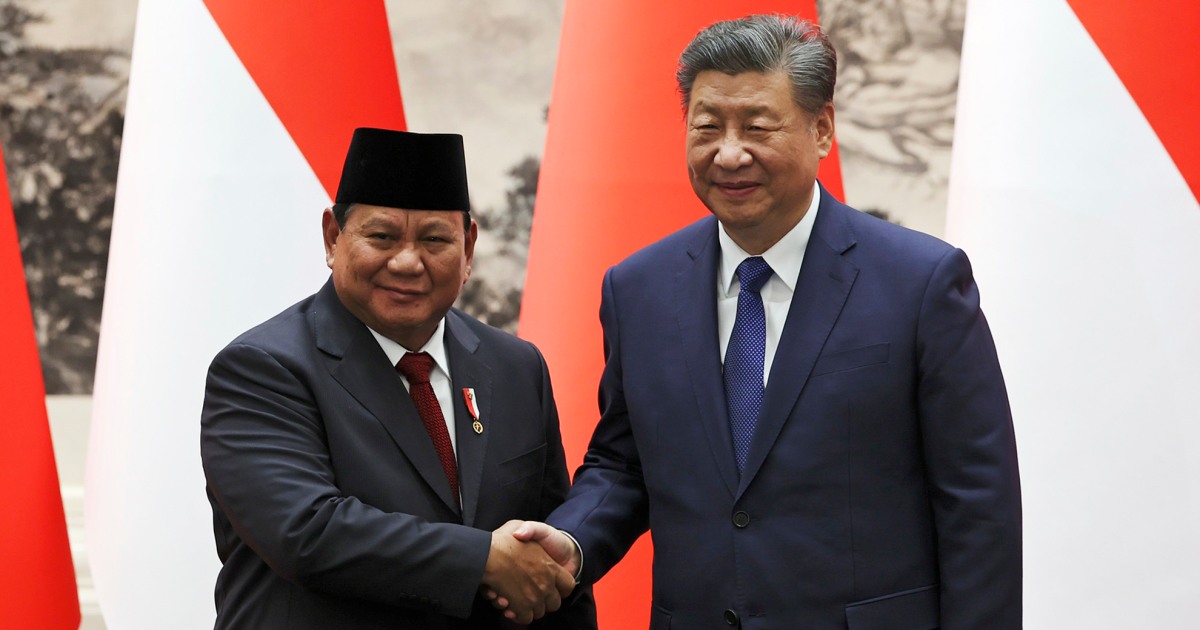Indonesia’s new leader calls for collaboration with China before heading to the U.S.
BEIJING — Indonesia’s new leader called for collaboration rather than confrontation with China after the signing of $10 billion in new deals at a business forum on Sunday in the Chinese capital before heading to the U.S.
President Prabowo Subianto told the forum that his country wants to be part of China’s emergence as not only an economic but also a “civilizational power.”
“We must give an example that in this modern age, collaboration — not confrontation — is the way for peace and prosperity,” he said.
Subianto wrapped up the first stop of his first overseas trip since taking office three weeks ago. He is headed next to Washington — where the U.S. government is confronting China’s rise — and then to Peru and Brazil for the Asia-Pacific Economic Cooperation and Group of 20 summits.
He and Chinese President Xi Jinping agreed Saturday to deepen ties, elevating security to a fifth “pillar” of cooperation in addition to political, economic, maritime and people-to-people exchange. They agreed to hold a first-ever joint meeting of their foreign and defense ministers in 2025, a joint statement said.
“Indonesia is very clear,” Subianto said. “We have always been nonaligned, we have always been respectful of all great powers in the world.”
Indonesia has remained on the periphery of the territorial disputes between China and its Southeast Asian neighbors in the South China Sea. It doesn’t have a formal dispute with Beijing, though Indonesia said its patrol ships repeatedly drove a Chinese coast guard vessel away from an Indonesian energy company vessel conducting a seismic survey less than a month ago.
Chinese companies have invested heavily in mining in Indonesia, as they have elsewhere in the world. China also helped build Indonesia’s first high-speed railway, an 88-mile route between Jakarta and Bandung that opened last year.
But a flood of low-priced Chinese products has hit Indonesia’s garment makers hard, closing factories and prompting calls for import tariffs. The government has sought to placate domestic producers while not angering the country’s biggest trading partner.


